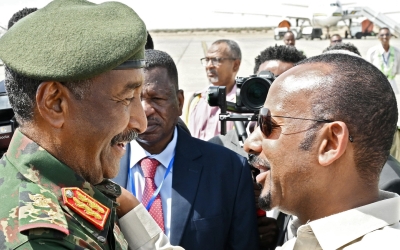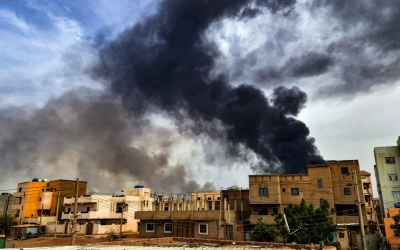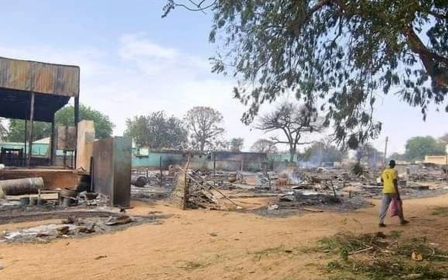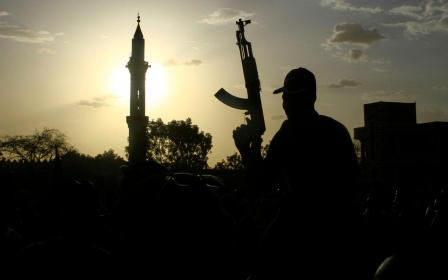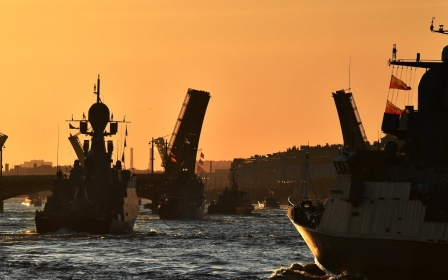Mohammed bin Zayed and Sudan's Burhan speak in call mediated by Ethiopia
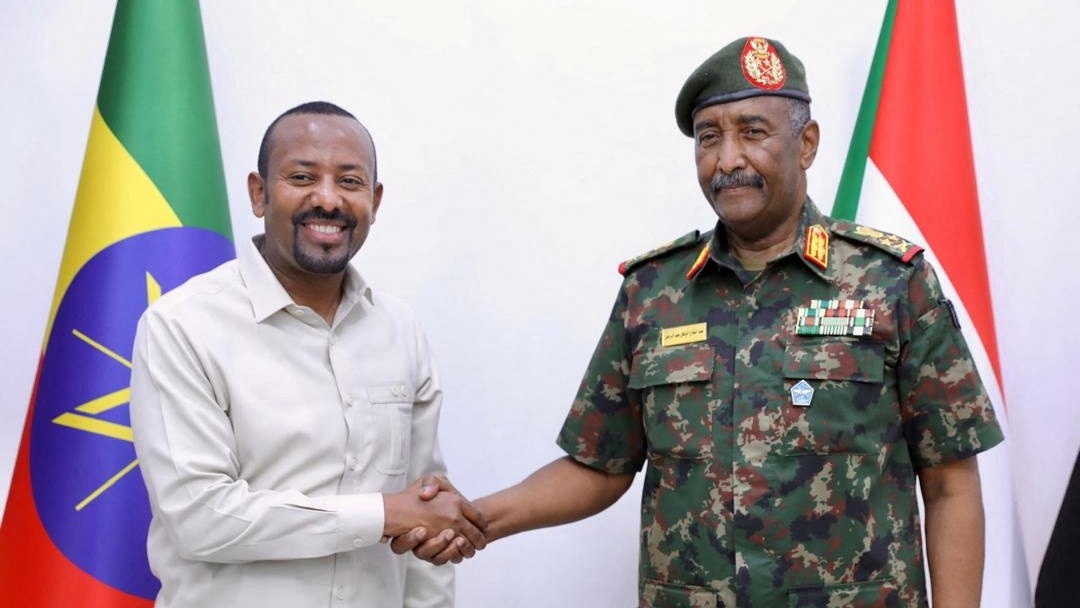
Sudanese army chief Abdel Fattah al-Burhan and United Arab Emirates (UAE) President Mohammed Bin Zayed spoke to each other on Thursday in a phone call mediated and arranged by Ethiopian Prime Minister Abiy Ahmed.
Multiple Sudanese and diplomatic sources told Middle East Eye that Abiy had mediated the phone call following his recent trip to Port Sudan to meet with Burhan and in the wake of a $817m bilateral currency swap agreement between the UAE Central Bank and the National Bank of Ethiopia.
It was the first conversation between the two leaders since June 2023, when the Sudanese army accused the UAE at the UN Security Council of providing weapons and support to the paramilitary Rapid Support Forces (RSF), which the army has been at war with since 15 April last year.
A source close to the Sudanese Armed Forces (SAF) told MEE that the phone call was proposed during Abiy’s visit to Port Sudan last week. During this visit, Burhan drove Abiy through Sudan’s wartime capital with just one translator present, prompting speculation that the talks between the leaders – who both have plenty of experience fighting civil wars – were top secret.
“During the visit of Abiy Ahmed, he convinced Burhan to ease the tension with the UAE, telling him that this was also the desire of the Emirati leadership, including the head of state Mohammed bin Zayed,” the source close to the army said.
New MEE newsletter: Jerusalem Dispatch
Sign up to get the latest insights and analysis on Israel-Palestine, alongside Turkey Unpacked and other MEE newsletters
According to multiple Sudanese sources, the call between Mohammed bin Zayed (MBZ) and Burhan was meant to remain secret, but Emirati state news agency WAM reported it on Thursday.
This leak has given rise to two competing stories – one from the Sudanese army and one from the UAE – about what was discussed and even who placed the actual phone call. While it is thought that Burhan made the call, the army-aligned Sudanese government has stated that the call was made by MBZ.
“During the phone call, Sheikh Mohammed bin Zayed expressed the UAE's desire to help stop the ongoing war in Sudan,” the army-aligned Sudanese Sovereignty Council said in a statement to the media.
“Burhan informed him that the UAE is accused by the Sudanese people, with substantial evidence, of supporting the rebels (Janjaweed), aiding those who kill Sudanese people, destroying their country and displacing them. He urged the UAE to cease these actions.”
According to the Emirati news agency’s description of the call between Burhan and MBZ, the ruler of Abu Dhabi “affirmed the UAE’s support for initiatives aiming at ending the crisis in Sudan”, as well as “affirming the UAE’s keenness to support all solutions and initiatives aimed at halting escalation and ending the crisis in Sudan in a way that contributes to enhancing its stability and security and fulfilling the aspirations of its people."
There appears, also, to be some disagreement within Sudanese army circles about how to now deal with the UAE. Yasser al-Atta, assistant commander-in-chief of the SAF, referred to MBZ this week as the “devil of the Arabs”, in comments that are believed to have been timed to anticipate the call with Burhan.
In November, Atta publicly blasted the UAE in a speech to members of the General Intelligence Service in Omdurman. “We have information from intelligence, military intelligence, and the diplomatic circuit that the UAE sends planes to support the Janjaweed,” al-Atta said, referring to the RSF by the name of the militias from which it emerged.
According to US estimates, around 150,000 people have been killed so far in Sudan's war, which has been raging for 15 months. More than 10 million Sudanese are displaced within the country, which the United Nations calls the world’s worst displacement crisis.
The UAE and the RSF
Middle East Eye has reported previously on the extensive support the UAE provides for the RSF through a network of supply routes that run through Libya, Chad, Uganda and the Central African Republic.
The UAE continues to deny that it is arming and supplying the RSF, which is led by its longtime ally Mohamed Hamdan Dagalo, the general and former Janjaweed commander known as Hemeti.
International human rights groups have found “clear and compelling evidence” that the RSF is committing genocide against “non-Arab groups” in Darfur, the vast western region of Sudan that is now almost entirely controlled by the paramilitary force.
Amjed Farid, a former special adviser to the ousted Sudanese civilian administration led by Abdalla Hamdok, told MEE the phone call was “part of the UAE’s attempts to whitewash its image and reduce international pressure on them over their support and arming of the RSF.
“In reality, this call changes nothing,” Farid said. “Diplomatic pleasantries via Abiy Ahmed with Burhan or others will not absolve the UAE of responsibility for the actions of its affiliated militia in our country.
"The destruction of our land, displacement of our people, and the atrocities unleashed by the militia - are unforgettable and unforgivable crimes.”
On Tuesday, Ethiopia and the UAE announced a currency swap deal that regulators said would “bolster the provision of liquidity in local currencies, enabling an effective settlement of cross-border transactions between the Emirates and Ethiopia”.
The countries also signed two initial agreements for the use of local currencies in settling cross-border transactions and for linking their payment and messaging systems.
Middle East Eye delivers independent and unrivalled coverage and analysis of the Middle East, North Africa and beyond. To learn more about republishing this content and the associated fees, please fill out this form. More about MEE can be found here.


